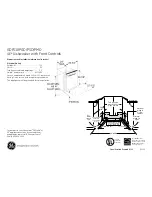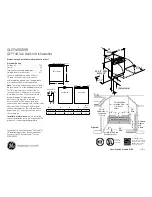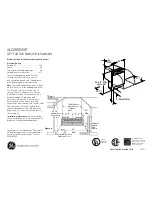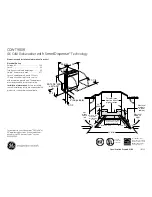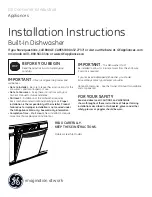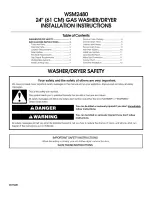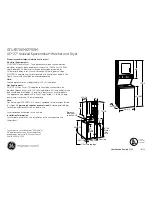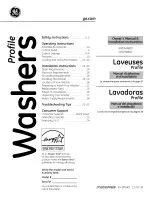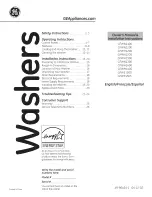
ENGLISH
15
system save up to 30% in time over traditional models. If
the door is opened during this stage the message
"CLOSE" will scroll on the display:
The filling and heating stage has finished when the
display shows the tank temperature:
To display the boiler temperature during heating of the
tank, open the door and press “J” button (Figure 14).
D2
WASH CYCLES
The wash cycle includes one wash with hot water and
detergent (150°F/66°C min) and one rinse with hot water
and rinse-aid (180°F/82°C min).
Table of times
Standard cycle time with supply water at 122°F/50°C.
A device lengthens the cycle time if the water in the
boiler has not reached the minimum temperature for cor-
rect rinsing.
The cycle times and the temperature may be person-
alised (e.g. increase of the rinse time and temperature).
The cycle times should only be set by an Authorized
Service technician.
D3
OPERATION
The filling and heating stage has finished when the dis-
play shows the tank temperature:
The appliance is then ready for use:
• Open the door.
• Pour the required amount of detergent into the tank
(in models without automatic dispenser).
• Insert the rack containing the dirty dishes.
Close the door and select the suitable wash cycle; the
corresponding indicator light comes on and the wash
cycle starts:
-
Cycle I
For lightly soiled dishes or glasses: press “J” button
(Figure 14)
(see table of times).
- Cycle II
(recommended)
For normally dirty dishes: press “H” button (Figure 14)
(see table of times).
- Cycle III
For very dirty dishes: press “F” button (Figure 14)
(see table of times).
To stop the wash cycle, just press the selected cycle
button or open the door.
• To continue the wash cycle, just press the selected
cycle button or close the door. The cycle starts again
from where it stopped.
• At the end of the wash, the dishwasher emits a series of
beeps and “END” blinks on the display:
open the door and remove the rack containing the
clean dishes.
WARNING
The appliance will not remove burnt food
deposits from dishes. Dishes with burnt-on
food deposits should be cleaned manually
using detergent (for example, pre-wash under
running water) before putting them in the dish-
washer
Change the water in the tank at least twice a day.
Type of racks and loading
• YELLOW rack: for 18 plates with maximum diameter
of 240 mm.
Figure 15
CLO
150°F
1
WT30H
120
sec.
180
sec.
240
sec.
1
2
3
150°F
1
2
1
2
3
1
2
3
End



















